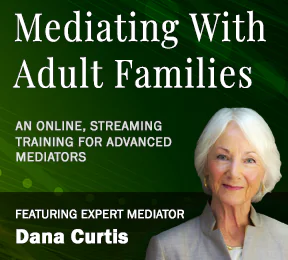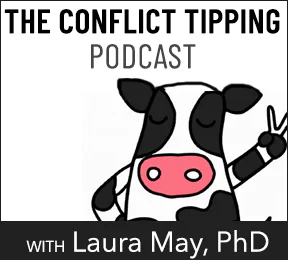But is this really the case?
I run a reflective organization, and I am personally deeply committed to issues of equality. So when we were fortunate enough to get indepth feedback from a Black party to a mediation we delivered, I wanted to reflect on the issues it raised for us as a business, and for us as mediators.
Challenging feedback from a Black party to a mediation
This mediation was between a Black woman professional who I will call Jane, and her White woman manager who I will call Sarah. They had worked together for around three years. Jane made a complaint of racial discrimination against Sarah which had been investigated by the employer (using an internal, White investigator). We were told that this had found no evidence of individual racism by the manager, but had found evidence of institutional racism (see reference below). According to the brief from the Client, the aim of the mediation was to restore the working relationship between Jane and Sarah. The mediators were a highly experienced White woman mediator, and a less experienced Asian woman mediator.
The situation was described to CMP at the point of referral as a ‘personality clash’
Despite the client having been found to have been ‘institutionally racist’ in the original complaint, by referring the case as a ‘personal’ issue the client had made an assumption about the motivation of Jane (the ‘complainant’) in relation to her Grievance. The White HR manager who referred the case was working within an organization that had downplayed the relevance and importance of diversity; and she was able to frame the situation as a ‘personal’ matter.
But how far did this reflect her own discomfort about issues of race? Because as it became clear, the target for Jane’s complaint was not the “whole person” of Sarah and the character she had built up in the course of her life, but the “person in role” and the actions by which Sarah carried out her management role.
We know that referrers have a ‘take’ on the case background when they contact us, and we are well aware that the parties will see things very differently.
But in cases where different social identities (and alongside that different power-bases) characterise the situation, how far do we go in exploring these with the referrer? And is there any point in challenging the referrer about the potential that their own understanding of the situation may be flawed or limited?
The mediators did not achieve equality in the mediation
First, Jane’s understanding of and ability to articulate the subtleties of discrimination at work was in marked contrast to Sarah’s less sophisticated understanding and what might be described as less well-developed self-awareness and insight. And second, learning can be uncomfortable, and the discomfort that many – all? – White people feel when challenged about issues of race by a Black person, is more uncomfortable still. But according to Jane, the way the mediators responded to these two dominant characteristics was not sufficient to achieve equality in the mediation. Jane pointed out that the mediators made two assumptions: first, because Jane was the more articulate, she was therefore the more powerful; and second, because Jane was calmer and more in control of herself , then Sarah’s feelings of anxiety, defensiveness and threat needed more attention that Jane’s feelings.
Jane fed back that the mediators appeared to feel that Sarah needed to be protected in some way beccause she was clearly intimidated by, and less articulate than, Jane. This led to a masking of the power relationship within the organisational context – who was managing who?
Does inarticulacy fudge issues relating to racial equality?
Despite being less articulate and less insightful, Sarah as a White woman and as manager, was in a more powerful position than Jane socially and hierarchically. Because the content of the mediation was so challenging for Sarah, the mediators sought to minimise her discomfort; their intention was to make a space for Sarah to move her understanding about the past, what was going on in the room itself, and what Jane’s experiences were. So the mediators wanted Sarah to be open to what Jane was saying, and we felt that overly challenging Sarah may have closed her off from the possibility of learning.
Defensiveness and discomfort prevent learning
White people at work may have a vested interest in appearing to be willing to learn, but find themselves closing off from learning because learning about anti-oppressive practice is so uncomfortable. When Jane asked Sarah to apologise ‘for the pain she had done to her’, Sarah refused, giving as justification comments like “there are not many Black workers here so I didn’t know I was…”, “I did my best but it just isn’t good enough for Jane”, and “I want Jane to acknowledge that I did my best”. So despite the work we did to reframe Jane’s position ‘I want an apology’ as a need – ‘I need you to acknowledge the pain you have caused me’ – Sarah’s defensiveness remained, because she was coming from a place where she felt that any admission on her part of ‘wrongdoing’ was an admission of ‘being racist’. And she was able to fall back on the investigation’s finding that she has not ‘been racist’.
Did the (probably unconscious) strategy of “playing dumb” get Sarah “off the hook”?
There had been three years during which these issues had been brought to Sarah’s attention; so how far should the mediators have gone in challenging her continuing to say that ‘she didn’t know’ about racism, discrimination and her own feelings about these tough issues? The feedback later from Jane was that she felt this should have been challenged more by mediators. But is it the mediator role to do this? While we do challenge, do we go far enough when issues of diversity are on the table? And if we did offer more challenge, would we be losing our ‘impartiality’, and would that matter?
Sarah defended herself against what she insisted on interpreting as an ‘allegation that she was racist’
Jane made it clear that her concerns about Sarah’s management practice related to racial equality. Sarah was stuck in defending herself against what she continued to interpret as an ‘allegation that she was racist’, no matter how much the mediators attempted to reframe this, or sought Jane’s help in clarifying this for Sarah. Sarah continued to refute what she had heard as the ‘racist behaviour’ allegation, with responses such as “why does Jane think that everything is about race, can’t it be about something else?”
The questions that remain with me
- As mediators we take on a position of neutrality. But how useful is this when working with issues of discrimination? Does ‘neutrality’ mean that racial inequality goes unchallenged?
- Should we ask for sight of findings from an investigation, and if we did how would we use this information in the mediation?
- Where there are findings of institutional racism, do we need to know that the organisation has done to deal with those issues? Can we trust the Client to tell us what they have learnt and how they are addressing the issues raised during the investigation? Does this matter?
- Do we need an assessment process in relation to organisational expectations? What if their expectations of mediation are collusive of racism?
- How do we as mediators make way for new knowing for parties, and balance power without discriminating against the other party? How far do we go to reframe issues of racism so that they become accessible to parties who are defensive about their own motivations, beliefs, values and behaviours?
- Do we collude with racism by aiming to help a party to become ‘less racist’ rather than “not racist”? Are we lowering the standard of equality?
- Is mediation there to raise awareness of equality issues, bearing in mind the need to be neutral with the need to avoid collusion?
I am left with more questions than answers; and welcome your comments and views on the lessons this case has for mediators.
Definitions of institutional racism in Macpherson Report of the Inquiry into the Death of Stephen Lawrence (1999)
“The collective failure of an organisation to provide an appropriate and professional service to people because of their colour, culture or ethnic origin. It can be seen or detected in processes, attitudes and behaviour which amount to discrimination through unwitting prejudice, ignorance, thoughtlessness and racist stereotyping which disadvantage minority ethnic people” (p28)
“The term institutional racism should be understood to refer to the way institutions may systematically treat or tend to treat people differently in terms of race. The addition of the word ‘institutional’ therefore identifies the source of differential treatment; this lies in some sense within the organisation rather than simply with the individuals who represent it. The production of differential treatment is ‘institutionalised’ in the way the organisation operates “ (p.27)








